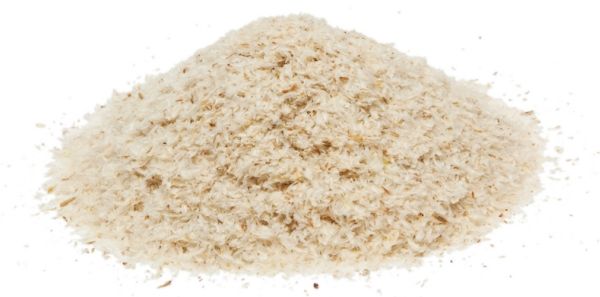Are Fiber Supplements as Good as the Real Thing?

Commercials make it look oh-so-easy to add fiber to our unhealthy diets: Just sprinkle a bit of powdered fiber supplement into your soup, sauce, dip or yogurt and voila — become as healthy as someone who regularly eats whole grains. The truth, of course, is more complicated, nutritionists say. While fiber supplements such as Metamucil, Benefiber, Fiber Choice and Citrucel can give a healthy boost to diets a little low in this indigestible, plant-based nutrient — especially helpful for people with sluggish digestion — they're no substitute for the real thing. "The real issue here is that eating a high-fiber diet from foods is almost, by definition, an excellent diet," said Joanne Lupton, a spokesperson for the American Society of Nutrition and professor of nutrition at Texas A&M University. "It's hard to reach dietary fiber recommendations without eating a lot of fiber . . . so once you take it out of the food, you probably won't have a very good diet." How much fiber do we need? Guidelines vary by gender and age, but the American Dietetic Association recommends eating between 21 and 38 grams each day. Americans typically eat only half that amount, Lupton told MyHealthNewsDaily. Fiber, also known as roughage, comes in two types: soluble fiber, which dissolves in water and may form a gel that carries food through the digestive tract; and insoluble fiber, which doesn't dissolve in water and rapidly passes through the digestive system largely intact. Good sources of both types of fiber include fruits, vegetables, beans, oats and whole grain breads and cereals, according to the National Fiber Council. Supplements — which include fiber sources such as psyllium, methylcellulose, wheat dextrim and inulin — entered the market more than a decade ago touting their laxative properties, but in the last five years have emerged as everyday food additives, suggesting healthier eating is just a shake away. Tasteless and odorless, marketers claim the supplments can be added to an endless list of soft foods and batters and change only the texture. However, at about 3 grams of fiber per tablespoon, it would take a lot of powdered supplement to fully meet daily dietary needs, said Lona Sandon, assistant professor of clinical nutrition at University of Texas Southwestern in Dallas. "You would be sprinkling it on everything all day long," said Sandon, also a spokesperson for the American Dietetic Association. "Just adding fiber to a food doesn't necessarily make it a health food. I'm sure there are people out there who try to justify it." Fiber supplements do, however, offer some of the same health benefits as food-based fiber, Lupton and Sandon both said. While lacking the vitamins and minerals that come with fiber in whole foods, powdered fiber can normalize bowel movements, help lower cholesterol and maintain more stable blood sugar levels — just like the real thing. And just like the real thing, the supplements may also come with unpleasant side effects. The downside "Some of them cause more GI [gastrointestinal] rumblings than maybe people would care to have," Sandon said. A high daily intake of 40 grams or more can interfere with the absorption of other nutrients and active ingredients in drugs, and although this can happen with both food-based and supplemental fiber, it's easier to overdo on the latter. According to the University of Maryland Medical Center, people taking certain medications — including tricyclic antidepressants, diabetes drugs, cholesterol-lowering drugs, lithium, digoxin or the seizure drug carbamazepine — should not use fiber supplements without talking to a health professional. "People can take them without problems," she said, "but just because a little is good, a lot is not necessarily better. If someone is taking daily medications, maybe they should take that at different times than the supplements." Lupton said that Americans — especially those struggling with their weight — should not use fiber supplements as a way to excuse eating foods that are not high in nutrients. "The problem is over-nutrition in the U.S. — obesity," she said. "We don't have the opportunity to get the fiber, vitamins and minerals we need just by supplements and then eat whatever we want that isn't nutrient-dense."
This story was provided by MyHealthNewsDaily, sister site to LiveScience.Follow MyHealthNewsDaily on Twitter @MyHealth_MHND.
Sign up for the Live Science daily newsletter now
Get the world’s most fascinating discoveries delivered straight to your inbox.
Most Popular




